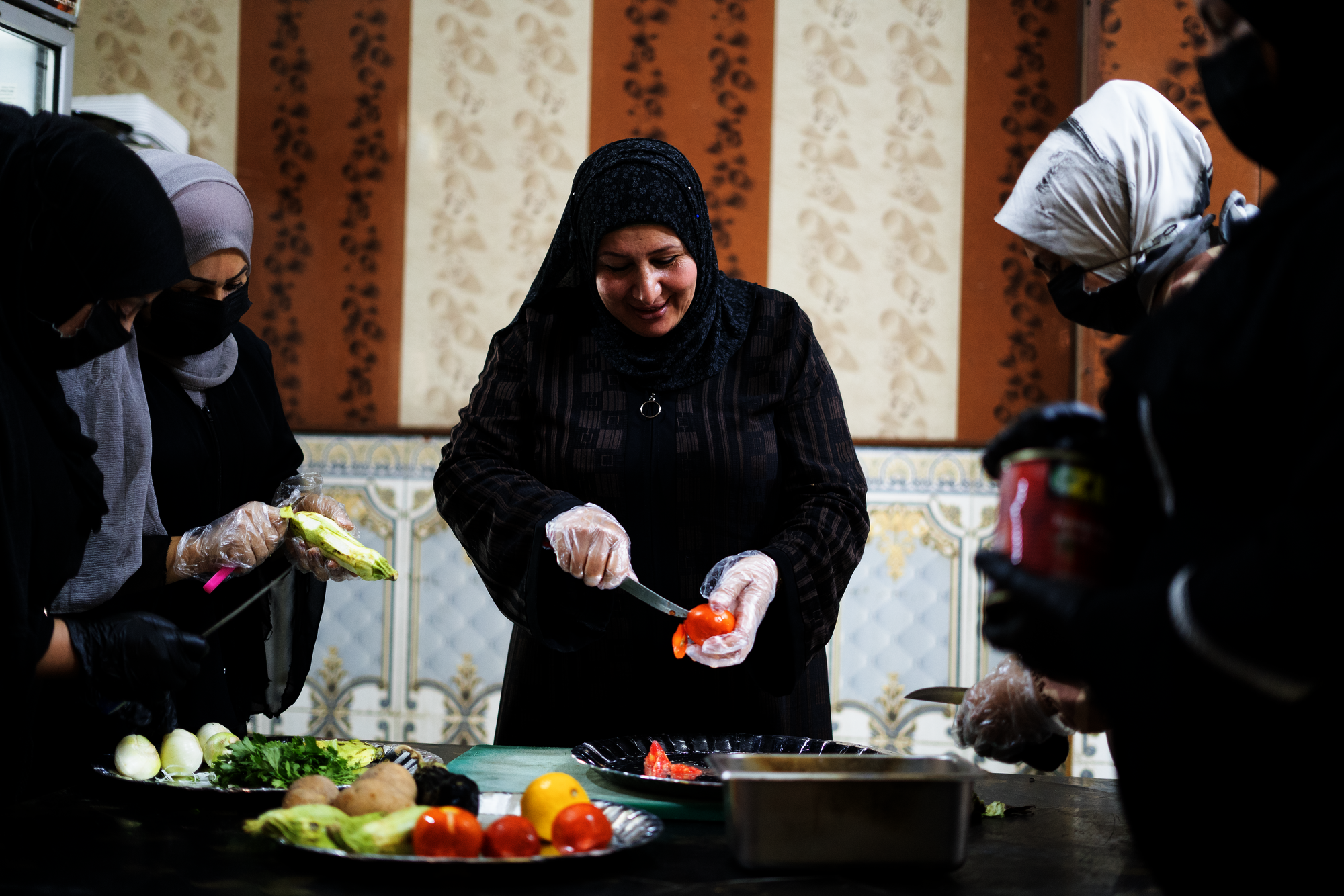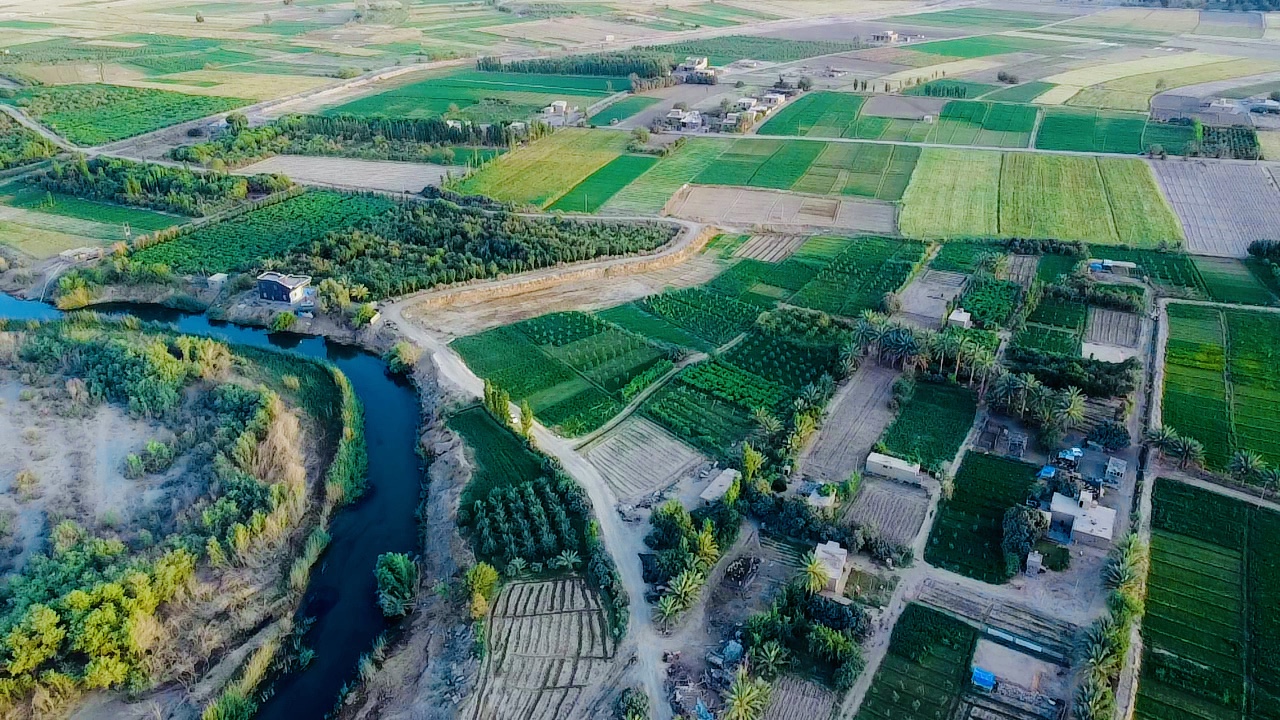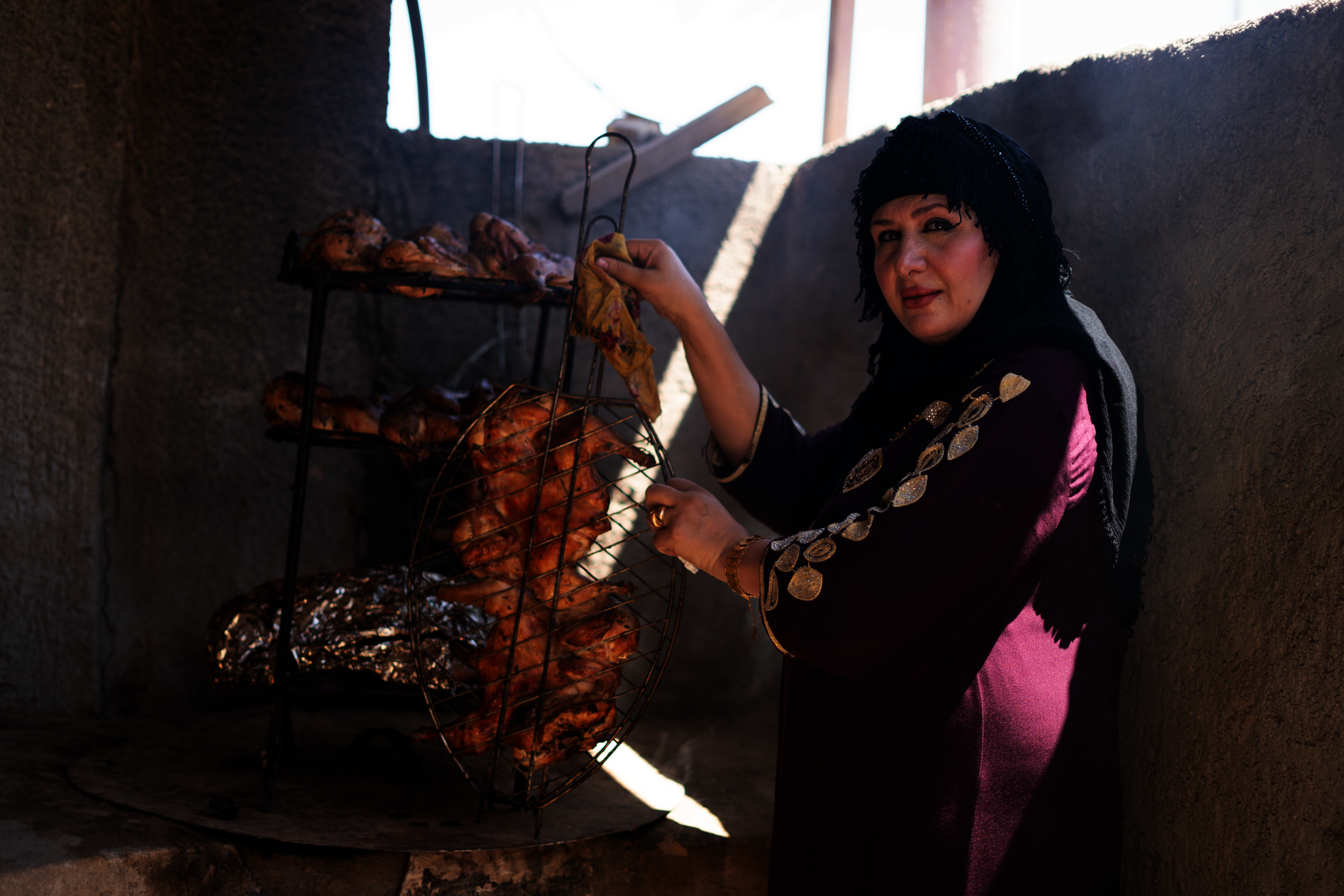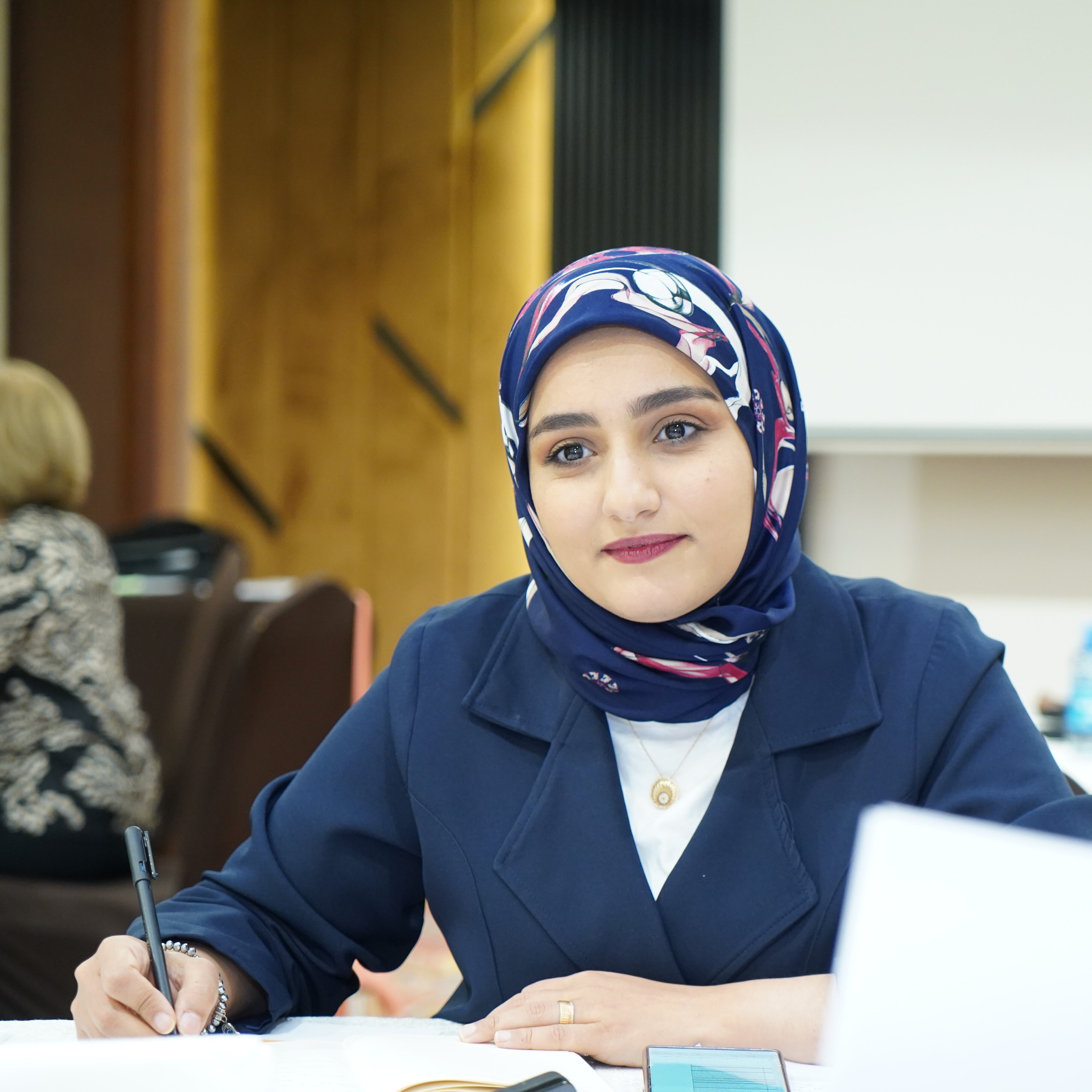‘When life gets hard, you must be harder’: running a takeaway kitchen in an Iraqi border town
This article was first published on the website of The Guardian on August 30, 2024.
Alhan al-Salmani has lived through conflict and personal trauma, but she’s never given up. Now she has opened a kitchen, giving other women work and making lunches a culinary pleasure in Qaim.
The town of Qaim lies on the border of Iraq and Syria, close to the great Euphrates River. Near the central market, in a spacious building of six rooms and a large hall, Alhan al-Salmani, who has six children and a harrowing history, runs her kitchen, Al-Eiz.The place is full of women. Twelve are sitting on the ground next to a vast tanoor, a traditional clay oven. On the right, pots full of rice and meat simmer on the fire. The sun’s glow lights the scene, while the smell of kubba – an Iraqi dish of minced meat packed in rice – draws you in. It takes time to prepare kubba and around 200 plates a day are made and sent out.
Salmani, 50, manager and chef, stands, gently offering guidance. Al-Eiz is Qaim’s first food takeaway business, supplying meals to farmers, militia from Iraq’s Popular Mobilisation Forces (PMF) and other soldiers, workers at non-governmental organisations, and the 3,000 households headed by women, mainly widows, who live in the town. People phone in their orders and either pick their food up or taxi drivers are engaged to collect and deliver the plates.
Khitam Hammad, who works for the International Rescue Committee, gets her lunch from Al-Eiz. “Alhan’s food reminds me of my grandmother’s food,” she says. The cooks start work at 7am. They make timmen qouzi – braised lamb with rice cooked over a wood fire – and dolma – vine leaves and vegetables such as aubergines, courgettes, onions, tomatoes and peppers stuffed with a flavourful mixture of rice, meat and herbs. Salmani will work in the kitchen for 10 hours. “I don’t get tired,” she says.

When Salmani was 15, her father forced her out of school to be married. “I enjoyed going to school, reading books and drawing,” she says. “I dreamed of being a teacher one day.” Instead she watched other girls her age continue at school, as she began cooking, cleaning and, before long, taking care of her own children. Salmani became a widow at 30 after her husband, an army officer, was killed in the battle of Baghdad in 2003, at the start of the US-led invasion of Iraq. She was left as the sole carer of their three children: Abdullah, Mohammed and little Omnia, who was four months old. “Being a widow is a stigma in my family,” Salmani says. “I didn’t choose to be a widow, but my brother wanted me to remarry, so he beat me.” She was pushed into another marriage, this time as a second wife. She began to suffer from anxiety, depression and loneliness. But, she says: “This was God’s will; Alhamdulillah, thanks be to God.”
I believe that my purpose in life is to support widows in my community
Ten years later, Iraq faced another invasion, this time from Islamic State. In 2014, when the Islamist group attacked Qaim, Salmani was pregnant. There was little food and she stayed at home while the Iraqi army and IS fought. “They were long, dark nights filled with fear and with only one meal of bread during the day. This is how I lived for six months.” The family finally escaped, fleeing to Baghdad in the night. “It was a time of adversity. I lived with my co-wife in a modest rented house, but my husband had no money.”
Salmani learned to cook from her mother. Like many Iraqi women, she would spend hours in the kitchen, preparing meals for the family. This was the foundation of what would become another journey. She convinced her co-wife to join her, and they sold fresh homemade food from their kitchen to shops and schools nearby. In 2017, Qaim was liberated from IS, one of the last places in Iraq to be freed, and their husband announced it was time to return home. Once back in Qaim, the family found their house had been destroyed. “When life gets hard, you must be harder,” says Salmani. “I rebuilt my house and started my project, Al-Eiz kitchen. I never gave up.”

Al-Eiz means dignity, and the kitchen is a successful business, employing women who might otherwise struggle to find employment. But Salmani has also established Al-Gharbia Women’s Group, which collects donations to prepare and distribute food to widows in Qaim. In March this year, it delivered food to 125 families in Qaim. “I understand how it is hard to be a widow,” she says. “I believe that my purpose in life is to support widows in my community. I am trying to help them through offering employment opportunities in Al-Eiz kitchen or by the voluntary food campaigns.”
Salmani has restarted the studies she had to abandon as a child. She is working towards a fine arts degree and has ambitions to one day open a wedding hall. “Al-Eiz hall,” she says with a smile. But as she talks, the woman who never gets tired has orders coming in and she returns to her team to prepare the food that will soon be in many Qaim homes.



